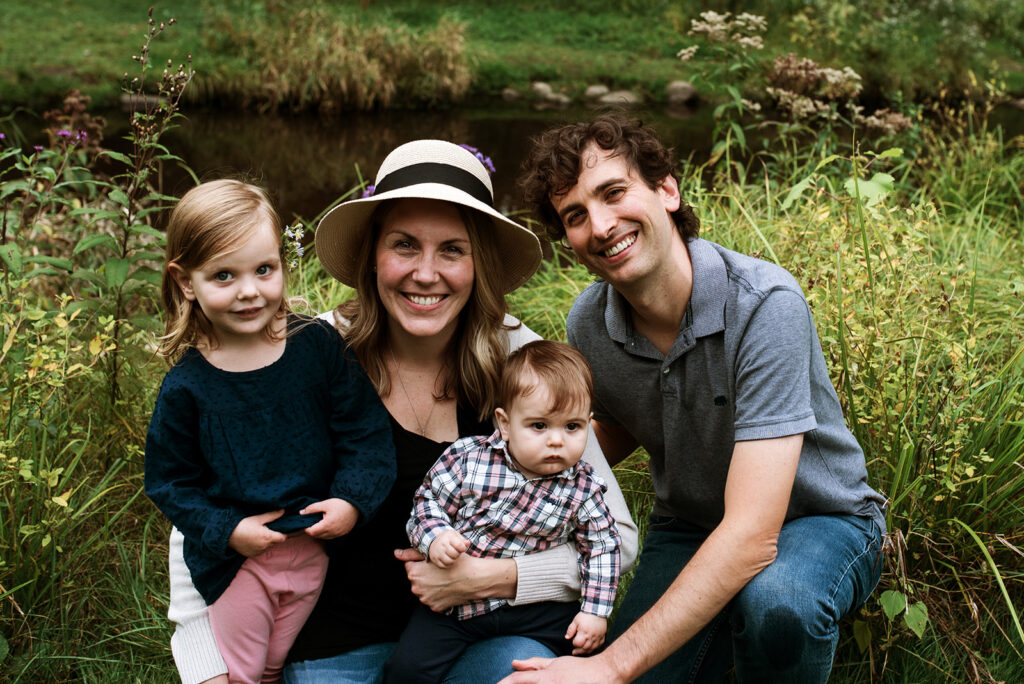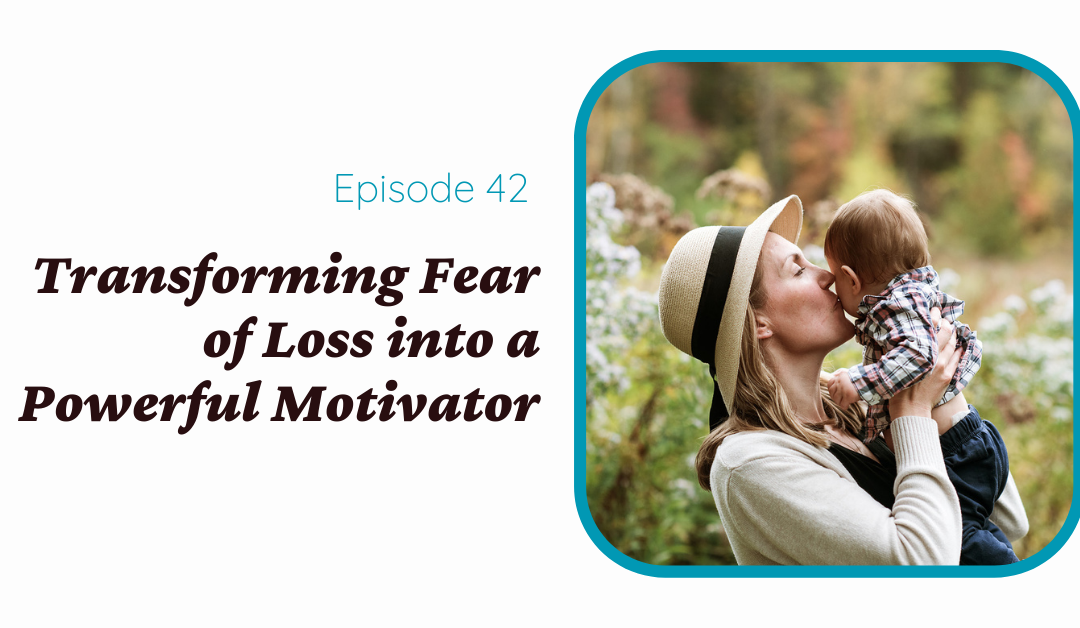Podcast: Play in new window | Download
Subscribe to The Innovative Therapist Podcast! Apple Podcasts | Spotify | RSS | More
Episode 42. Have you ever had a health scare (for you or a loved one) and been frustrated with yourself that it didn’t propel you to make a big lifestyle change?
On today’s episode of the Motivation Made Easy podcast, I talk about our family’s experience learning of our high genetic risk of cancer. I share this as one example of how fear of loss can help motivate positive health changes when we have the right mindset.
Are you ready to take that first step?
Are you sick of decision fatigue and feelings of overwhelm? You wake up feeling anxious, not sure what to eat or focus on in your day. Not exactly sure how to spend your time. Maybe you end up scrolling your phone or just jump into your emails, not really sure how to spend your time.
You finish your day focused on all the things you didn’t get done, frustrated and angry that you aren’t more focused on what truly matters. Maybe you felt that you weren’t present with your kids or loved ones? I know that’s the one that hurts me the MOST.
I think we have all been there.
If you are ready to start getting clear on what you should be spending your time on and what’s helpful, it first starts with clarifying your values.
The #1 strategy I hear over and over that is MOST HELPFUL in developing autonomous and sustainable motivation is to clarify your values. Have you done it yet? Or lately?
I, for one, do this regularly, particularly when I’m feeling a bit lost. And as a new entrepreneur, this happens quite often!
Grab the free guide at DrHondorp.com/goals, which will walk you through a step by step process to get started on clarifying what matters to you and what you should be focusing on at this season of your life. I promise you; it’s never too late to stop dieting and start truly living.
A Personal Story

Today we are getting personal. I talk first about about having basal cell carcinoma last year and how a recent experience brought up fears about our family history.
I share that my husband has Lynch syndrome, a genetic mutation that greatly increases his risk (and potentially our kids) of many types of cancer.
How to Transform Fear into Positive Progress
When (Fear-Based) External Motivation Does Not Motivate
Have you had a health scare in the past where you really hoped it would propel you to make habit changes in your life, but it didn’t? I know this is extremely common, because I would often talk to patients about this.
They might have recently had a heart attack and be incredibly frustrated with themselves that they weren’t “taking it more seriously.”
I can relate to this, as I think many of us can. In the past, before I stopped dieting, I always hoped that health scares would motivate me to live a healthier life.
I would try to use them as a reason for eating differently (“I have high cholesterol, I shouldn’t have that”) but really when push came to shove, it didn’t work.
The motivation was solidly in the external category. A “should” that was not transforming into any internal motivation any time soon.
How to Merge the Eating Disorder & Weight Management Worlds in a Healthy Way
We happened to find out about my husband having Lynch syndrome when I was working in a Preventive Cardiology clinic that recommended plant-based eating.
Therefore, I decided to try out the Forks Over Knives Meal Planner as this was often being recommended to our patients.
It basically gives you a concrete grocery list and meal plan to follow every week so that you don’t have to stress about what to eat or what to buy at the store. It does have all plant based recipes, but you can absolutely add meat or other foods you enjoy to the pre-planned meals if you’d like.
And, it’s very affordable! I highly recommend trying it if you want to save time and take worry away from planning your own meals.
However, more than focusing on the meal planner, I recommend that you focus on your internal WHY for making changes in your life based on the trials and tribulations you’ve been given.
Rather than focusing on what you’re told you SHOULD do, it’s important to zero in on what you feel you can control, and whether or not you feel like what you’re doing is actually positive for you and your health.
“Sometimes we’re caught up in that should-based, shame-based external motivation cycle, and when you get out of that it can be really freeing. So it’s really asking yourself not what should I do, but what do I want to do? How is changing my health important?”
Dr. Shawn Hondorp, PhD
The Most Shocking Thing I Learned in My Plant-Based Eating Class
I have written about this in the past, but I share again some of the data on how percentage of calories from animal protein is highly linked to cancer risk.
This is another example of how our over focus on weight loss distracts us from the things we actually do have control over (e.g., our habits, how many fresh fruits and vegetables we have on a regular basis).
Take Home Message
I urge you to consider the information you have gotten about your health and your weight. Are you over emphasizing your weight and how much it impacts your health risk?
If you are having a lot of shoulds or fears about your health, I urge you to just notice that, but then turn inward and ask yourself the question, “What do I really want for my life and why is my health important to me?”.
Usually our health is important to use because of the things it will allow us to do, now or in the future. If you want more help clarifying this, download my free guide here.

Disclaimer: This blog and podcast is for informational and educational purposes only. It is not a substitute for individual professional advice or treatment, including medical or mental health advice. It does not constitute a provider patient relationship.
References
Campbell, T. & Campbell, T. C. (2006). The China Study: The Most Comprehensive Study of Nutrition Ever Conducted and the Startling Implications for Diet, Weight Loss, and Long-term Health.
Dunaif, G. E. & Campbell, T. C. (1987). Dietary protein level and aflatoxin B1-induced preneoplastic hepatic lesions in the rat. The Journal of Nutrition, 117, 1298–1302.
Madhavan, T. V. & Gopalan, C. (1968). The effect of dietary protein on carcinogenesis of aflatoxin. Archives of Pathology & Laboratory Medicine, 85, 133-137.
Youngman, L.D., & Campbell, T. C. (1992). Inhibition of aflatoxin B1-induced gamma-glutamyl transpeptidase positive (GGT+) hepatic preneoplastic foci and tumors by low protein diets: evidence that altered GGT+ foci indicate neoplastic potential. Carcinogenesis, 13, 1607–1613.
Youngman, L. D., & Campbell, T. C. (1991). High protein intake promotes the growth of preneoplastic foci in Fischer #344 rats: evidence that early remodeled foci retain the potential for future growth. The Journal of Nutrition, 121.
